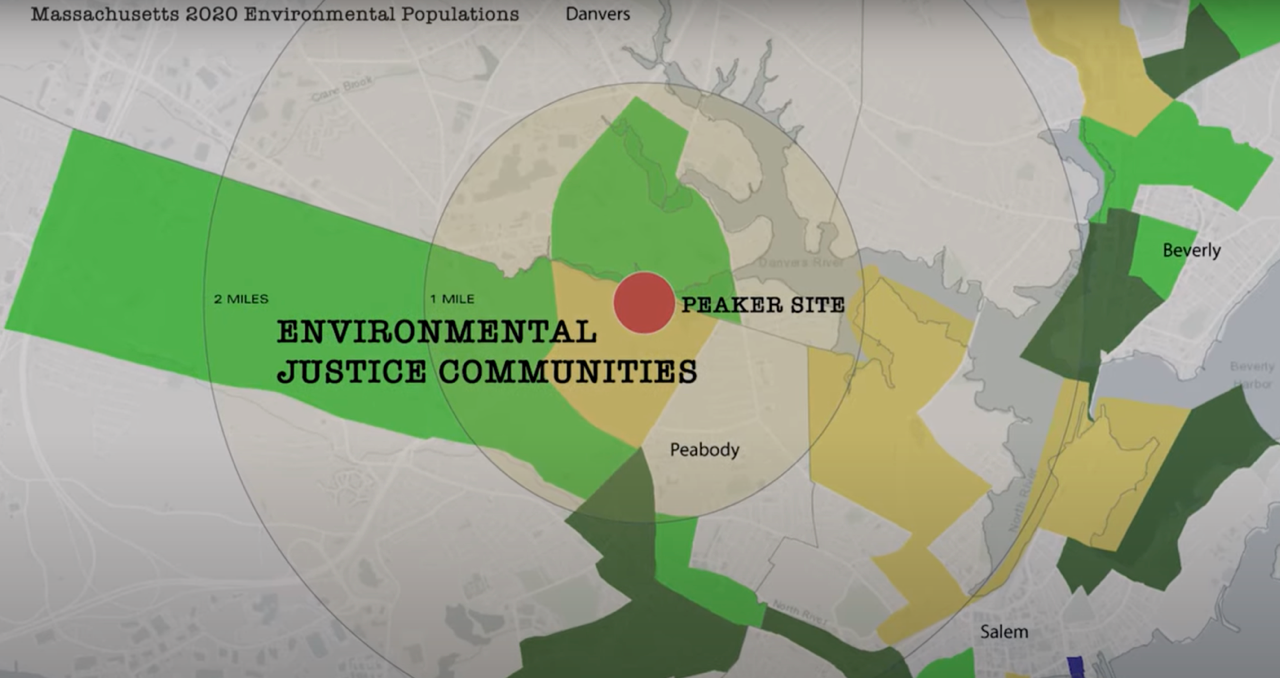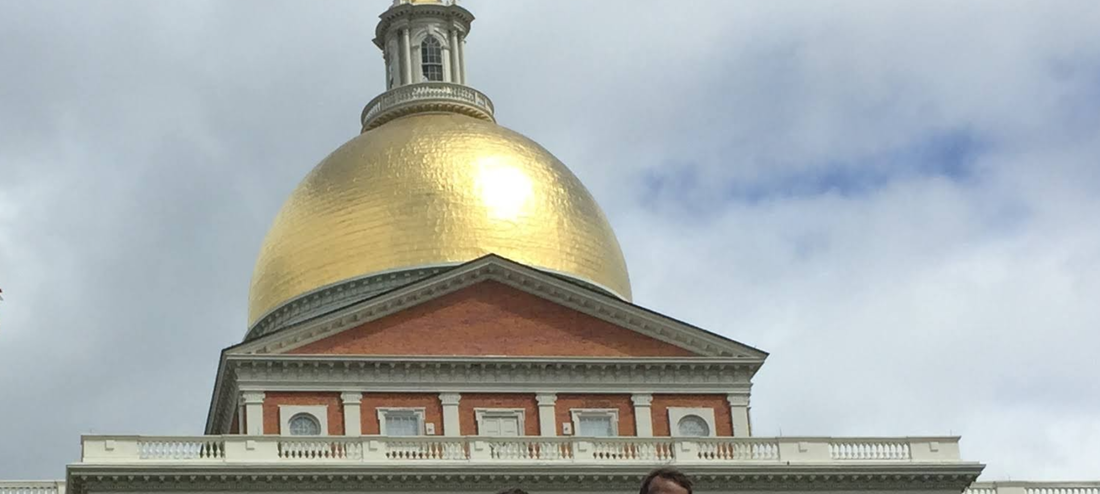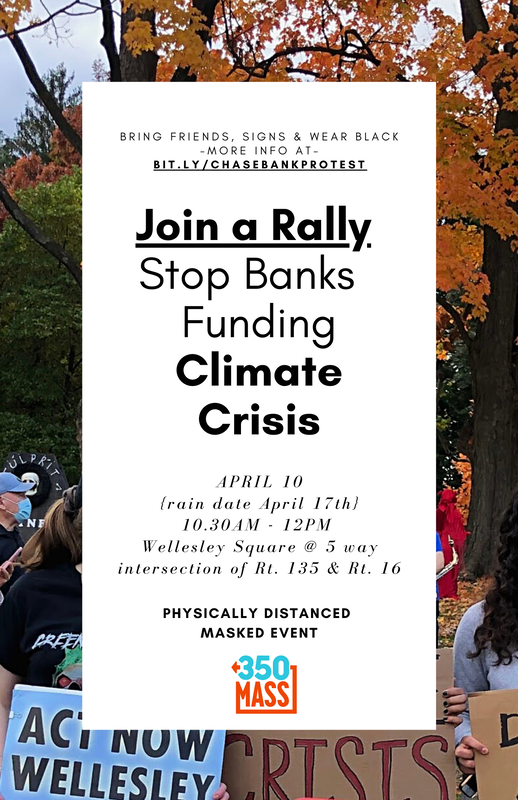|
Fall is a great time to think about what you can do to make a difference in the urgent effort to address climate change. As you "ease" into fall schedules and, for those with kids, find yourself with a few extra hours now that school is back in session, consider signing up to volunteer with Sustainable Wellesley. Everyone is welcome. It's a great way to share a skill you have, build new ones, meet new people and do something that matters to you.
Our all-volunteer run, not-for-profit organization teams great people with a worthy mission to engage residents, businesses and the Town of Wellesley to take sustainable actions to protect our climate; reduce pollution of air, land and water; preserve biodiversity; minimize waste; and ensure environmental justice. We know some of topics/skills below are things that you know and/or care a-lot about. Plastics/waste Renewable Energy Plant Based Eating Environmental Justice Buildings Cars Gardening Marketing Writing Fund Raising Organizing Managing Event Coordination Photography Design Social Media Research shows that if you do something you feel better about the situation! Reach out at [email protected] and join our group of 6,000+ residents like you taking action! The Wellesley Department of Public Works (DPW) is helping cut carbon emissions with a significant investment in electric landscaping equipment. Starting this week, residents will see this new equipment in use in parks and open spaces and the entire Town will reap the benefits of these positive climate actions.
The department recently expanded its rechargeable battery-powered fleet, using funds from its Fiscal Year 2022 budget to purchase a large EGO riding mower and EGO brand cordless outdoor equipment including: two electric push lawn mowers, a pole hedge kit, six carbon fiber trimmers, and 4 leaf blowers. These new tools are in addition to other small rechargeable equipment like trimmers and leaf blowers that DPW bought in 2020. All are the same make and batteries for the equipment are interchangeable. The purchases were spurred by panel discussions a year ago sponsored by the Town of Wellesley, Lexington DPW, Wellesley Natural Resources Commission, and Sustainable Wellesley in partnership with two nonprofits, American Green Zone Alliance and Quiet Communities, Inc. Look for DPW crews using the new equipment at four established green spaces: Central Park near the Wellesley Square post office, Church Park in front of the Village Church, the Wellesley Police Department grounds, and the Tolles Parsons Center on Washington Street. These high-traffic parklands showcase pesticide-free landscaping and low-maintenance native plantings to foster birds, bees and other useful insects. Because they run on rechargeable batteries, this equipment eliminates fumes and vibrations that are harmful to operators and passersby, and have lower decibel levels to reduce use noise. To keep equipment charged when away from power sources, DPW Director Dave Cohen is mounting charging stations on a trailer. “We are eager to see how this set up works and if the equipment can give crew members the sustained service that is required during long work days,” said Cohen. According to Paul DePhillips, Assistant Superintendent of the DPW Park & Tree division, the team is also considering adding a solar panel to the roof of the trailer to provide some additional charging capability and reduce or even eliminate plug-in charging time. DePhillips’s crew has also added four electric chainsaws. The most expensive piece is the rider electric mower, which retails for about $4,999 and can cut up to two acres on a single battery charge. The motor emits a sound that resembles a ‘faint whine,’ instead of a louder mowing noise. In the coming months, DPW will be collecting data to quantify the benefits of shifting to electric equipment and will present this information to the Town to help inform future decisions about expanding the electric landscaping program. Climate Action in Wellesley The electric landscaping equipment program is helping support the Town’s climate action goals to reduce greenhouse gas (GHG) emissions 50% below 2007 levels by 2030 and reach net-zero by 2050. Wellesley is currently developing a Climate Action Plan that will serve as a roadmap for reaching these goals. To learn more visit https://www.wellesleyma.gov/1584/Climate-Action- Plan. The Federal Tax Credit, MA State Rebate, and Drive Green Dealer Discounts Can Lower the Purchase Price of an Electric Vehicle
The town of Wellesley is striving to achieve a 50 percent, community-wide reduction in greenhouse gas emissions by 2030 and net-zero emissions by 2050. Transportation currently accounts for 43 percent of Wellesley’s greenhouse gas emissions. Electric vehicles (EVs) are an important part of Wellesley’s emissions reduction strategy along with increased biking, walking, and use of public transit. For those considering buying a new EV, current federal tax credit, state rebate, and Green Energy Consumer Alliance Drive Green programs offer significant savings. The Drive Green program, for example, offers negotiated dealer discounts on EVs from a range of makers, including Chevrolet, Mitsubishi, and Nissan, making it easy to compare prices and find a dealership with knowledgeable sales staff. Special offers on pre-owned EV and hybrid vehicles are also available. Tesla EVs are not part of the Drive Green program. “Transportation, along with buildings, is a leading contributor to greenhouse gas emissions in Wellesley,” said Dr. Marybeth Martello, Wellesley’s Sustainability Director. “Every one of us can help combat climate change by replacing older, gas-powered vehicles with EVs. EV purchase incentives make it more cost-effective for each of us to do our part.” As one example, a new Hyundai Kona Electric, an EV with a battery range of 258 miles, is now available for just $24,497. Normally retailing for $38,575, this EV is available now for $14,078 less, thanks to a Green Energy Consumer Alliance Drive Green discount, a federal tax credit, and the state of Massachusetts MOR-EV rebate: $38,575 Retail price ($4,078) Drive green dealer discount ($2,500) MA state rebate ($7,500) Federal tax credit $24,497 Final effective price To learn about the Green Energy Consumer Alliance, click here. To learn more about Wellesley’s Climate Action Plan, click here. To comment or ask a question, email [email protected]. Tell Your Legislator that Companies Should Have a Stake in Recycling Their Products - TODAY!6/22/2021
FROM GREEN NEWTON:
A hearing on three bills regarding manufacturer funded recycling programs will take place in the Massachusetts State Legislature from 1-5pm on June 22. Passing these bills on extended producer responsibility (EPR) for paint, mattresses, packaging, and paper would help defray the cost of disposing of or recycling these items that cities and towns in Massachusetts currently bear. It would also set a precedent in Massachusetts for a better way to manage the items that are thrown away each year. The three bills are:
What is Extended Producer Responsibility? Extended Producer Responsibility (EPR) legislation makes manufacturers have a stake in recycling the products and packaging they generate. An EPR bill would create a fund to cover the cost of recycling and incentivize companies to make their packaging more recyclable. Why is EPR needed? Municipalities have little power to control the barrage of materials flooding the Commonwealth but are responsible for managing recycling and disposal.
Extended Producer Responsibility has been tested and proven in countries all over the world.
An energy efficient building code that still allows the combustion of fossil fuels is not helping Massachusetts achieve its goal of Net Zero greenhouse gas emissions by 2050.
Because of the state’s Net Zero goals outlined in Gov. Baker’s Clean Energy Climate Plan, new homes will have to either be built to Net Zero now or be retrofitted later. It is less expensive to both the state and owners to build Net Zero buildings now than to retrofit buildings down the line. But cities and towns are prohibited from exceeding the state’s “stretch” code (a building code that requires higher energy efficiency standards for new buildings than the base code) even while many developers are already building to Net Zero standards at little to no a to no additional cost (ReadyforNetZero_03.01.21.pdf). That’s why Massachusetts needs a new “Net Zero” stretch code that includes the use of renewable energy instead of gas or oil. To keep the pressure up to guarantee that the Net Zero stretch code developed by the Department of Energy Resources is truly Net Zero, please consider: 1) Writing to the Board of Building Regulations and Standards ([email protected]) to let them know that a true Net Zero stretch code means building safe and healthy housing, affordable to heat and cool, and effective in mitigating climate change. A true Net Zero stretch code transforms our buildings from a major source of emissions to being part of the climate solution. 2) Share the news on your favorite social media and include any and all of the following hashtags: #NetZeroForAll, #NetZeroNow, #ProtectOurAir, #ElectrifyEverything, #AllElectric, #PassOnGas, #GasFreeHomes, #CleanEnergy, #AirPollution· Need inspiration? Harvard Study estimates burning fossil fuels for buildings costs Massachusetts $8.4 billion in annual health impacts An interactive map shows health impact of building emissions by state Thanks! Many Town Boards, Committees, and Commissions positions are available.
Take a look here. Positions are appointed by Wellesley Select Board. Council on Aging: The Wellesley Council on Aging (COA) was established by legislative action in 1972 to coordinate and carry out programs and services to meet the needs and objectives of the population age 60 and over. The COA is funded through local taxes, state, federal, and local grants, and private contributions. Cultural Council: The Wellesley Cultural Council administers money that the Massachusetts Cultural Council allots to Wellesley from state funds, including the state lottery. These funds support the arts, humanities and sciences in the Wellesley community. The Council also serves as an advocacy voice for the arts in our community and state. Historic District Commission: The Commission's primary responsibility is the review of applications for alterations to exterior architectural features for the sixty-five (65) properties within the Cottage Street Historic District and four (4) Single Building Historic Districts. Historical Commission: The Wellesley Historical Commission works to protect and preserve tangible evidence of the architectural, aesthetic, cultural, economic, political and social history of Wellesley. Sustainable Energy Committee: The Sustainable Energy Committee (SEC) leads efforts to accomplish the goal adopted at the 2009 Annual Town Meeting (ATM): to reduce Town-wide greenhouse gas (GHG) emissions 10% below 2007 levels by 2013, to monitor and report progress toward that goal, and to propose further goals for emissions reductions to Town Meeting. The 2014 ATM adopted the SEC proposal to establish a new goal to reduce Town-wide emissions 25% below 2007 levels by 2020. The Unified Plan also identifies sustainability and energy conservation as important goals. Veterans Advisory Board: The West Suburban Veterans’ Services District (WSVSD) operates under the provisions established by the Commonwealth of Massachusetts General Laws, Chapter 115. The office provides veterans and their dependents with a full range of benefits and services based on qualifications and eligibility requirements, using all available Federal, State and Town government agencies. The department also monitors the care and maintenance of all veterans’ graves and sixteen veterans’ monuments in Town. There are five board members with three year terms. Updated: April 15, 2021 Veterans’ Graves and Ceremonial Officer: This appointed position works with the Veterans Services Officer to register and maintain veterans’ graves including the placement of a United States flag on each grave on Memorial Day. Coordinates and supervises the observance of Memorial Day and Veterans’ Day in the community in conjunction with the WSVSD and ceremony committee. (Must be a Wellesley resident). Wellesley Housing Development Corporation: The Wellesley Housing Development Corporation's mission is to sponsor and assist in the development of affordable housing opportunities for persons of low and moderate income in the Wellesley, Massachusetts in order to implement the Town's Affordable Housing Policy. Youth Commission: The Wellesley Youth Commission provides programs and services designed to ensure that Wellesley's youth feel they are a valued part of the Wellesley community. Zoning Board of Appeals: The Zoning Board of Appeals is a quasi-judicial board which interprets and enforces the town Zoning Bylaw by hearing and deciding on petitions for appeals of town officer or board decisions, Chapter 40B comprehensive permits, site plan approvals, special permits and variances. Learn More! For detailed information on Town of Wellesley Boards and Committees, please visit here: To volunteer for any Town Board or Committee, please complete this volunteer form. On April 10th from 10.30am - 12pm, local climate groups led by 350MASS MetroWest are joining together with citizens of all ages in Wellesley Center to make the MetroWest community aware of the huge impact that the banking industry has on climate crisis and environmental justice. All are welcome to join the rally, specifics are here.
“As a new Chase Bank prepares to open for business in Wellesley, it is an ideal time to let passersby know that JPMorgan Chase Bank provides far more overall funding worldwide for both current and new fossil fuel projects than any other bank in the world,” said Rick Devereux, 350MASS MetroWest. Other banks in town scoring low on the corporate social and environmental responsibility list due to fossil fuel financing include Citi, Wells Fargo, Bank of America, RBC, and TD Bank. In spite of the severe warnings from climate scientists and worldwide agreements for lowering carbon emissions in the 2016 Paris Climate Accord, Chase has since funded the carbon-polluting fossil fuel industry with more than $268 billion. Fossil fuels, especially from tar sands, are a major cause of climate chaos. “Banks are making profits at the expense of the environment and their policies often negatively impact communities of color the most,” said Wellesley College student Suzanna Schofield. The good news is that the fossil fuel sector is only a small percentage of Chase’s portfolio, so the option to stop its support is within reach. The demonstrators will be asking the community to learn more, share their knowledge and consider cutting up credit cards, closing accounts and selling shares of banks that support activities that fuel the climate crisis. Masks and physical distancing required. Rain date April 17th. Last week after the Massachusetts Legislature put its climate bill on the Governor’s desk for the second time, Governor Baker signed it into law. This sweeping and historic statute is the first piece of climate legislation passed in Massachusetts in over a decade, creating the foundation for bold and robust statewide climate policy for years to come.
Specifically, the Roadmap Bill strengthens Massachusetts’s emissions reduction targets to establish a 50% reduction by 2030, a 75% reduction by 2040 and a goal of Net Zero greenhouse gas emissions by 2050. Having targets like these will hold the Commonwealth accountable to reduce emissions in our energy, transportation and building sectors. To make these goals, the act stipulates the development of a Net Zero Energy stretch building code, which it empowers communities to adopt by 2022. It also mandates energy efficiency standards for appliances by 2025, and authorizes another 2,400 megawatts of offshore wind power. It also provides protections for Environmental Justice communities. What does this mean for Wellesley? Later this month, Wellesley’s Sustainable Energy Committee (SEC) will be updating the Town’s greenhouse gas (GHG) emission reduction goals and bringing them to the Annual Town Meeting (ATM) 2021. These goals, contained in Article 24, call for reductions in town-wide GHG emissions of 50% below Wellesley’s 2007 baseline by 2030, 75% below Wellesley’s 2007 baseline by 2040, and net zero town-wide GHG emissions by 2050. These science-based goals follow State policy, are in line with The United Nations Intergovernmental Panel on Climate Change, support Wellesley’s Unified Plan, and echo similar climate actions taken by an increasing number of Wellesley’s peer communities across the Commonwealth. Residents are encouraged to contact their Town Meeting Members letting them know they support these emissions reductions goals for our community. Wellesley residents and students will mark the one year anniversary of standing up peacefully for the climate on Friday, February 5th and encourage you to join them.
Residents of all ages, and their colorful signs, stand on the lawn in front of the Wellesley Town Hall, on Washington Street/Rt.16 every Friday from 3-4pm. A year ago Wellesley resident Ken Batts, inspired by Greta Thunberg’s Fridays for the Future movement, decided he would personally stand out every Friday to bring awareness to climate change issues. He wasn't alone. “It's really a highlight of the week when a variety of community members come together, having interesting discussions, networking and simply having a relaxing, non technology hour in the week,” Batts said enthusiastically. “Plus, the waves, honks and cheers from people driving, biking and walking by are really encouraging. Everyone is welcome and encouraged to attend any Friday at 3pm outside the Wellesley Town Hall. There is a Facebook group called FRIDAYS FOR FUTURE-WELLESLEY, MA with photos and more information. Bring friends, family and neighbors to stand socially distanced and masked. Feel free to bring a sign or use one in the collection. |
Categories
All
|
Sign up for updates! |
Contact |
Support us! |
Follow us!Copyright © 2024 By Sustainable Wellesley
|











 RSS Feed
RSS Feed